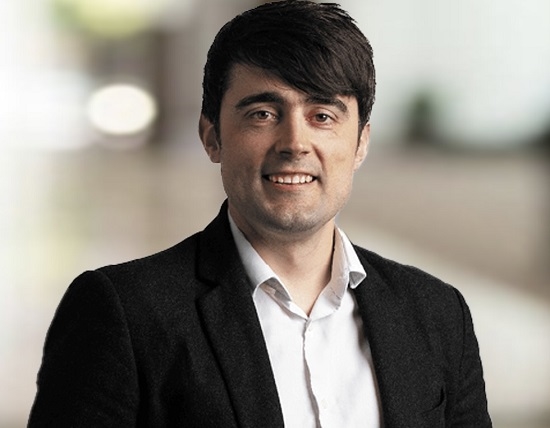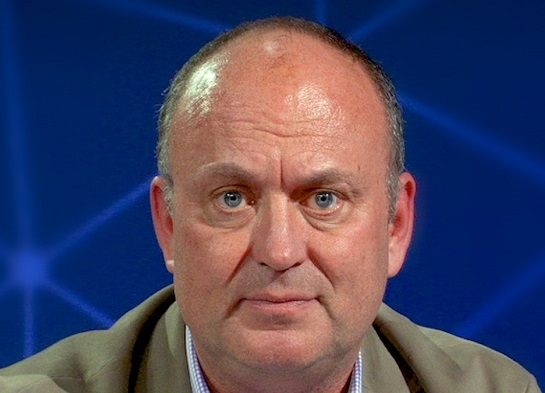What this wave of vendor M&A will bring

A new wave of consolidation is washing its way through the futures vendor community. Hamish Purdey believes it’s not the wave that matters, but the ripples it leaves behind. The smart money is on the newly emerging vendor landscape of 2014 heralding some long overdue technological change in the industry.
The recent news that Bloomberg has acquired RTS for an undisclosed sum has prompted the question from many as to whether there is yet another wave of consolidation underway in the futures vendor community.
The move by Bloomberg to buy RTS represents an aggressive move by them into the platform space. RTS, established by the Germunden family, has a long pedigree of not only providing direct market access to futures markets but also to equities markets worldwide.
RTS has built a strong business both in the on premise and in the hosted environment. In turn, Bloomberg also acquires the benefit of years of experience fine-tuned by RTS not only in the connectivity and market data game but also in risk management.
No doubt this will have come into Bloomberg’s thinking when pondering the buy vs build debate.
A history of M&A
Consolidation is nothing new. The industry has seen a significant amount of it over the last ten years: a glance at an FOW exhibitor list from ten years ago shows a very different vendor landscape to the one we have today.
In spite of this, very few vendors have stepped up and attacked the full STP question. Sungard and ION Trading are still the only vendors with a full front to back offering while Fidessa & Bloomberg round out the big four vendors now. The recent acquisition of UL-Link again shows private equity’s attraction to the stickiness and recurring revenue nature of the fin-tech space.
Acquisition and then acquisition again has consumed a large number of vendors. Companies such as Yes Trader, Ecco, Future Dynamics, Exchange Technology, Exchange Systems Technology, Ubix, EasyScreen, Emos, GL, WTD Consulting, Spread Intelligence, Patsystems, Mixit, Tamesis, FFastFill, Tickit and now RTS have been subsumed into the bigger players or into industry.
Fidessa remains the only listed vehicle of the remaining set, which makes market sizing a difficult task. We also continue to see some exchanges compete in this space with largely single exchange solutions which provide exchange specific functionality.
And of course the question still remains: ‘just when will the citadels of the in-house provided solutions fall or become integrated into platform based plays?’
The impact of acquisitions
Acquisitions happen. It’s the effect that they have which is important. It will be fascinating to see what the ripples of this particular wave of consolidation will be.
The next steps for the more established, independent vendors such as Trading Technologies, CQG, Orc, Object Trading, Stellar Trading, ATEO, Crystal Stream and others will be keenly watched.
Some of these companies have hundreds of staff around the world and boast fully hosted deployments while others are definitely sub-scale and below critical mass.
Take Australian based and ASX listed Iress, for example. What path will it follow as it integrates the acquisition of Wealth Management platform Avelo in the UK for £210m in 2013 and begin to expand from its largely Australian base?
Do the strategies of these vendors take them towards an acquisition strategy, or cross asset, or to a platform / SaaS basis?
Do they seek to improve their straight through processing capabilities or do they stay true to their existing domain expertise in a single silo of the STP chain?
Do they seek to jump on the wave of M&A or continue to ride the storm and continue to control their own destinies?
In reality, each will follow their own path – not the crowd. But the new breed of vendors those decisions create will change the industry and its way of working.
Emergence of new players
I believe we will continue to see specific domain expert focussed vendors emerge with nimble, non-legacy, 21st century technology.
The recent announcement by Duco of a win at FC Stone as well as Gresham Computing (at which I am a non-executive director) winning Macquarie both with cloud based reconciliation technology deployments are examples of futures instruments and trade flows being managed by non-traditional vendors.
The technology opportunity of 2014 and beyond certainly outweighs anything available when any of the traditional vendors were born and this is evidenced by the significant platform re-work projects underway at a number of the vendors in both front and back office technology.
In a futures world of compressed sell side revenues both from commission and interest, an OTC environment with an unknown future and increasingly unknown pay day and continued regulatory uncertainty, I think the only certainty is that the vendor space will continue to change and evolve.
Hamish Purdey was most recently Chief Executive Officer of FFastFill plc and now serves on the board of Gresham Computing plc as a non-executive director. He can be contacted at hjpurdey@gmail.com
Found this useful?
Take a complimentary trial of the FOW Marketing Intelligence Platform – the comprehensive source of news and analysis across the buy- and sell- side.
Gain access to:
- A single source of in-depth news, insight and analysis across Asset Management, Securities Finance, Custody, Fund Services and Derivatives
- Our interactive database, optimized to enable you to summarise data and build graphs outlining market activity
- Exclusive whitepapers, supplements and industry analysis curated and published by Futures & Options World
- Breaking news, daily and weekly alerts on the markets most relevant to you



